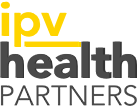Promote team-based care by training the entire health center
Health centers participating in the Improving Health Outcomes Through Violence Prevention Pilot Project and Project Catalyst found that training all staff—from the front desk to physicians—promotes team-based care and was a key part of their success in sustaining a comprehensive response to IPV and HT. Training all staff also increases awareness of workplace policies and support available to employees facing IPV and HT.
Before introducing health center staff to IPV and HT assessment, universal education and response (mentioned above) related to patients, first educate staff on IPV and HT resources and referral specific to employees. A partnering DV/SA advocate may help develop a workplace policy; offer training to health center staff; facilitate a wellness/resiliency staff support group; or serve as a primary referral for staff requesting support. They may also help offer education on the dynamics of IPV and HT; vicarious trauma; self-care; and discuss institutional supports that help promote staff resiliency.
Key elements of training:
- The health center’s commitment to IPV and HT system change, goals and timeline;
- Introduction of partnering local DV/SA advocate(s) and DV/SA advocacy services available to employees and clients;
- Vicarious trauma and staff self-care;
- IPV and HT dynamics and prevalence;
- Physical and emotional health impact of abuse and trafficking;
- Case examples to build clinical skills on how to offer universal education on healthy and unhealthy relationships and trafficking;
- Assessment for IPV and HT and harm reduction strategies including warm referrals to local DV/SA programs; and
- Information on documentation, reporting (as needed) and quality improvement.

We have completely revamped our intake process. Because of the conversations from the training that we have had we dramatically increased the number (and effectiveness) of questions about health. We’re looking at our clients’ needs holistically. We’re sending the clients a message that it’s safe to talk about those issues here.”
— Maria Cancel, LMHC, Director of Social Services, Brockton Neighborhood Health Center (Brockton, MA)
The following tools were designed to support health centers get started by holding a training (ideally one 3.5 hour training or two 1.75 hour trainings). Tools include PowerPoint decks, short video vignettes, fact sheets, and clinical guidelines.
Tools to Provide Training
- Project Catalyst: State-Wide Transformation on Health, IPV and Human Trafficking
Click here to download - Trauma-Informed Approaches to Address IPV and HT in Community Health Centers
Click here to download - Integrating Health Services into DV Agencies and Community-Based Organizations
Click here to download
- CUES Infographic
Click here to download - Archived Webinars
Click here to view - Training videos for health settings
Click here to view

